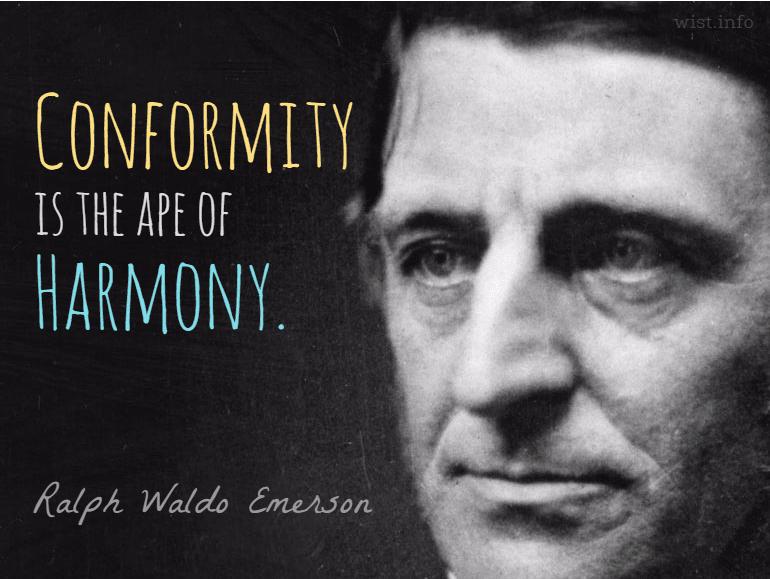Not to be able to bear with all bad-tempered people with whom the world is crowded, shows that a man has not a good temper himself: small change is as necessary in business as golden coin.
[Ne pouvoir supporter tous les mauvais caractères dont le monde est plein n’est pas un fort bon caractère: il faut dans le commerce des pièces d’or et de la monnaie.]
Jean de La Bruyère (1645-1696) French essayist, moralist
The Characters [Les Caractères], ch. 5 “Of Society and Conversation [De la Société et de la Conversation],” § 37 (5.37) (1688) [tr. Van Laun (1885)]
(Source)
(Source (French)). Alternate translations:
We must bear with some peoples bad Characters, as we do with bad Money, for the benefit of Commerce.
[Bullord ed. (1696)]
Not to be able to bear with all the bad Characters the World is full of, is no good Character: Copper Mony, for the sake of Commerce, is necessary as well as Gold and Silver.
[Curll ed. (1713)]
We must bear with some Peoples ill Tempers, as we do with Copper Money, for the benefit of Commerce.
[Browne ed. (1752)]
To be unable to endure all the unpleasant characters of whom the world is full is not an admirable characteristic: we need, in our dealings, both gold coins and small change.
[tr. Stewart (1970)]
Quotations about:
getting along
Note not all quotations have been tagged, so Search may find additional quotes on this topic.
Etiquette is about all of human social behavior. Behavior is regulated by law when etiquette breaks down or when the stakes are high — violations of life, limb, property, and so on. Barring that, etiquette is a little social contract we make that we well restrain some of our more provocative impulses in return for living more or less harmoniously in a community.
Judith Martin (b. 1938) American author, journalist, etiquette expert [a.k.a. Miss Manners]
“Polite Company,” interview by Hara Estroff Marano, Psychology Today (1998-03)
(Source)
Captious, yet kind; pleasant but testy too;
I cannot bear to part, or live with you.[Difficillis facillis, iucundus acerbus es idem:
Nec tecum possum vivere nec sine te.]Martial (AD c.39-c.103) Spanish Roman poet, satirist, epigrammatist [Marcus Valerius Martialis]
Epigrams [Epigrammata], Book 12, epigram 47 (12.47) (AD 101) [tr. Pott & Wright (1921)]
(Source)
Sometimes given as 12.46. Ker notes the second line is borrowed from Ovid, Amores, 3.9.
(Source (Latin)). Alternate translations:
In all thy humours whether grave or mellow,
Thou'rt such a touchy, testy, pleasant fellow;
Hast so much wit and mirth, and spleen about thee
There is no living with thee, or without thee.
[Addison, The Spectator #68 (18 May 1711)]
Such stiffness, ease; such sweets and sours about thee!
I cannot live, or with thee, or without thee.
[tr. Elphinston (1782), Book 12, #126]
Difficult and easy, churlish and pleasing; you are all of these, and yet one person;
there is no living with thee, nor without thee.
[tr. Amos (1858), ch. 3 #85]
Thou'rt merry, sad; easy, and hard to please;
Nor with nor from thee can I live at ease.
[tr. Wright (<1859)]
You are at once morose and agreeable, pleasing and repulsive.
I can neither live with you, nor without you.
[tr. Bohn's Classical (1859)]
Captious, yet complaisant, sweet and bitter too,
I cannot with thee live, nor yet without thee.
[ed. Harbottle (1897)]
Difficult and easy-going, pleasant and churlish, you are at the same time:
I can neither live with you nor without you.
[tr. Ker (1919)]
O sweet and bitter in a breath,
O genial comrade, crusty friend,
Without thee life had sudden end,
With thee to dwell were sudden death.
[tr. Francis & Tatum (1924), #662]
There's something easy, difficult,
Hard and soft about you
All the time. I cannot live
With you or without you.
[tr. Marcellino (1968)]
Amiable but unco-operative,
Sweet-natured but a grouse --
Though I can't live without you, I can live
Without you in the house.
[tr. Michie (1972)]
You are difficult and easy, pleasant and sour; and I can't live with you nor yet without you.
[tr. Shackleton Bailey (1993), 12.46]
You're difficult and easy, sweet and tart.
I cannot live with you, nor live apart.
[tr. McLean (2014), 12.46]
Difficult or easy, pleasant or bitter, you are the same you:
I cannot live with you -- or without you.
[Source]
Conformity is the ape of harmony.
The virtues of society are the vices of the saint. The terror of reform is the discovery that we must cast away our virtues, or what we have always esteemed such, into the same pit that has consumed our grosser vices.
Ralph Waldo Emerson (1803-1882) American essayist, lecturer, poet
“Circles,” Essays: First Series (1841)
(Source)





